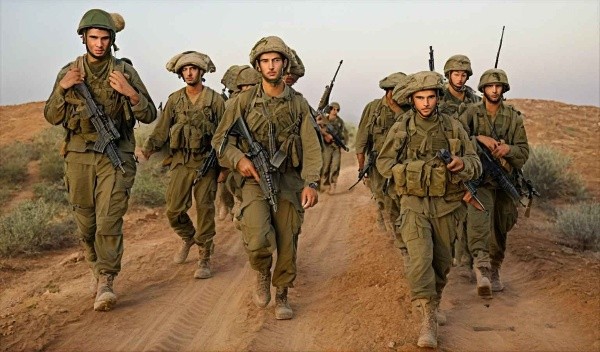Iran’s Plan to Strike Back Against the U.S.
Iran’s Military Preparations Following U.S. Attacks
Loading...

Military describes attacks as ‘limited, localised and targeted’ and supported by air force and artillery.
Targeted Raids Against Hezbollah Begin
In a significant escalation of military actions, the Israeli military has announced the commencement of “targeted ground raids” in southern Lebanon. This operation, which began early on Tuesday, is aimed at Hezbollah, the Iranian-backed militant group, with a focus on villages near the Israeli border. Israeli authorities describe these incursions as “limited, localized, and targeted,” supported by air strikes and artillery fire.
The decision to launch these ground raids was sanctioned by Israeli political leaders and marks a new phase in Israel's ongoing conflict with Hezbollah. This situation has been exacerbated since Hezbollah initiated low-intensity attacks against Israeli positions, following Israel's military actions in Gaza last October, which were triggered by an unprecedented assault from the Palestinian group Hamas.
Political Context and Military Strategy
Former Israeli Justice Minister Yossi Belin expressed hope that the operation would remain limited. Speaking to Al Jazeera from Tel Aviv, he acknowledged the complexities of managing such military engagements, highlighting the historical challenges of controlling ground operations in the region. Belin emphasized the need to curtail Hezbollah's combat capabilities to restore stability for Israeli citizens living in northern communities.
U.S. officials have also confirmed that Israel had previously undertaken smaller ground operations against Hezbollah, in addition to sealing off areas along its northern border. On Monday, U.S. Secretary of Defense Lloyd Austin engaged in discussions with Israeli Defense Minister Yoav Gallant, affirming the importance of dismantling Hezbollah's attack infrastructure. The Pentagon released a statement stressing that such measures are crucial to prevent future attacks on Israeli northern communities reminiscent of those experienced on October 7.
Airstrikes and Civilian Impact
As the ground operations unfolded, residents of Beirut, the Lebanese capital, reported hearing the sounds of airstrikes, with smoke rising from southern suburbs known to be Hezbollah strongholds. In a precautionary move, Israel ordered the evacuation of residents from several buildings in these areas. Despite the ongoing military actions, there have been no confirmed reports of direct confrontations between Israeli troops and Hezbollah militants, who have not engaged in ground combat since the month-long war of 2006.
The escalation of hostilities has led to a humanitarian crisis, with tens of thousands of people on both sides of the border fleeing their homes in recent months. In a notable incident last week, Israeli airstrikes targeted key Hezbollah leadership figures in Lebanon, resulting in the death of the group's prominent leader, Hassan Nasrallah. In the wake of these attacks, Hezbollah has continued to launch rockets and missiles at Israeli positions.
International Reactions and Humanitarian Concerns
In light of the ongoing conflict, U.S. President Joe Biden has called for a ceasefire when questioned about Israel's military plans. While he expressed support for Israel’s right to defend itself, he advocated for a diplomatic resolution to ensure the safety of civilians on both sides of the border. The President's comments come amidst growing concerns over the humanitarian implications of the conflict, with over 100,000 individuals reportedly displaced to Syria from Lebanon since the escalation began.
Lebanon's acting Prime Minister Najib Mikati has reiterated the government’s commitment to implementing United Nations Security Council Resolution 1701, which aims to disarm Hezbollah and restore peace in the region. As tensions continue to rise, the situation remains precarious, with the potential for further escalation as both military and civilian casualties mount.
Editor
Iran’s Military Preparations Following U.S. Attacks
Troops remain in five strategic locations, raising fears of renewed tensions and long-term occupation.
Opposition forces have taken control of the capital after a significant offensive. Here is how it unravelled.
